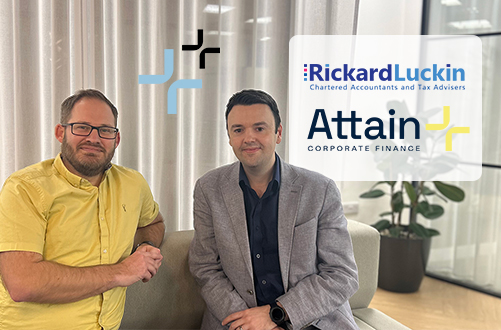An employee share scheme is a program that allows employees to own a portion of the company they work for through purchasing or being granted shares.
These schemes can be suitable for companies of all sizes and for employees at various levels of seniority, but is particularly popular among start-ups and fast-growing companies as a way to attract and retain talent, align employee interests with the success of the company, and provide a potential financial reward to employees if the company succeeds.
Advantages of employee share schemes
Employee share schemes are widely considered to have a number of advantages, including:
- Attracting and retaining talent: Offering employees the opportunity to own a stake in the company can be a powerful tool for attracting and retaining talented employees.
- Aligning employee interests with company success: When employees have a financial stake in the company's success, they may be more motivated and committed to helping the company achieve its goals.
- Potential financial reward: If the company performs well, employees who own shares may benefit from increased share value, potentially leading to a financial reward.
- Improved employee engagement: Participating in a share scheme can help employees feel more connected to the company and more engaged in their work.
Disadvantages of employee share schemes
While employee share schemes can have benefits for both the company and the employees, there are also potential downsides to consider, including:
- Lack of diversification: Employees who participate in a share scheme may have a significant portion of their wealth tied up in the company's stock, which can increase their risk if the company performs poorly.
- Limited liquidity: It can be difficult for employees to sell their shares, particularly if the company is private and not publicly traded.
- Limited control: Employees who own shares in the company may not have much say in the company's decisions, as they typically hold a small percentage of the overall shares.
- Complexity and administration: Implementing and managing an employee share scheme can be complex and time-consuming, particularly if the scheme involves multiple participants or tax considerations.
What happens if I leave the company or want to sell my employee share schemes shares?
The treatment of shares issued via an employee share scheme when an employee leaves the company, or wishes to sell their shares, depends on the specific terms of the scheme and the type of shares involved.
Employee share schemes and tax
There are several types of employee share schemes but Share Incentive Plans (SIPs), Company Share Option Plans (CSOPs) and Enterprise Management Incentives (EMIs) are typically viewed as three of the most popular tax-advantaged schemes.
Share Incentive Plans
SIPs don't tend to be popular in the SME space because they have to be offered to all employees, whereas EMI and CSOP allow you to pick certain employees to participate.
Company Share Option Plans
CSOPs have historically been under-used because most SMEs are eligible for EMIs, and EMIs have a higher value limit (£250k per employee). However, CSOPs have just been increased from £30,000 to £60,000 and not all companies are eligible for EMI (but most will be eligible for CSOP).
Enterprise Management Incentives
EMIs are designed for smaller companies with gross assets of less than £30m and fewer than 250 employees to grant share options to employees as a way to incentivise and reward them. They offer the following tax advantages for employees:
- No income tax or NICs on the difference between the market value of the shares at the time they are granted and the exercise price (i.e., the price the employee pays to buy the shares).
- If there is at least two years between grant date and sale date then potentially the disposal gain will qualify for a 10% CGT rate (formerly known as Entrepreneurs' Relief, but now known as Business Asset Disposal Relief).
Professional advice
Implementing an employee share scheme is a complicated process and it is imperative that you seek professional advice to determine whether it is appropriate for your business and your employees.
At Rickard Luckin we have extensive experience in employee share schemes and can advise you on the most appropriate route. Our team can prepare the necessary statutory paperwork to implement the recommended scheme and undertake a valuation of your company to establish the tax liabilities that may arise.
If you have any questions about the above, or would like more information specific to your circumstances, please enter your email address below and we will get in touch:
















